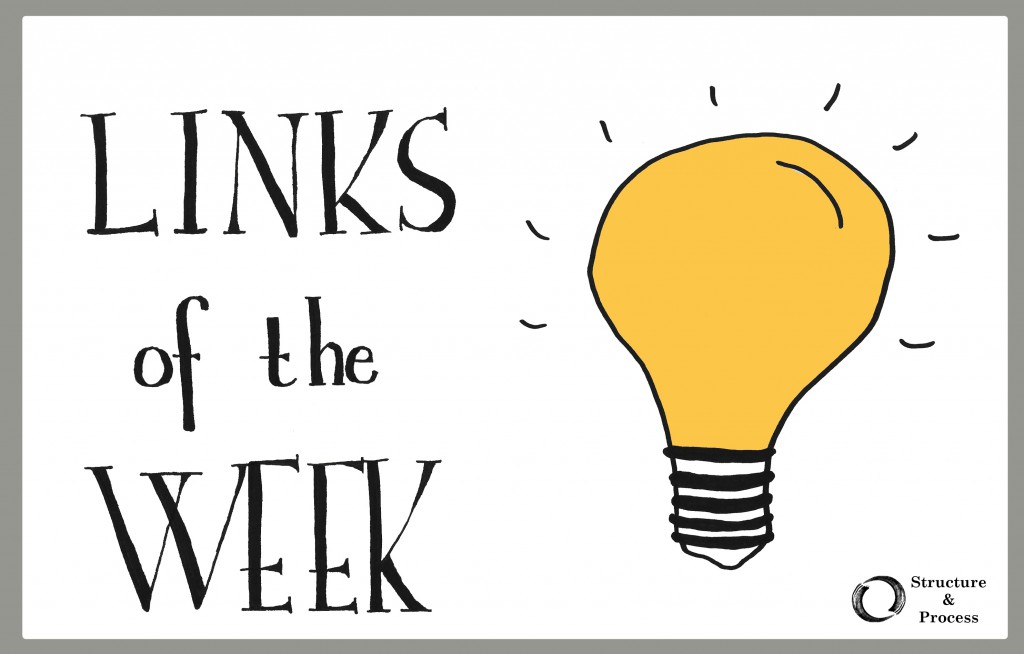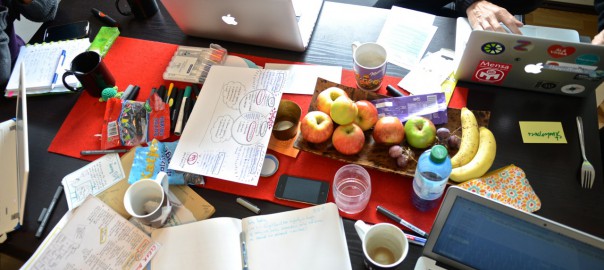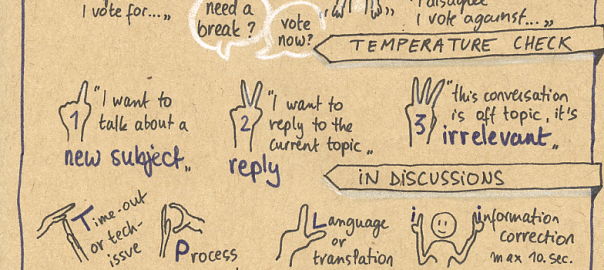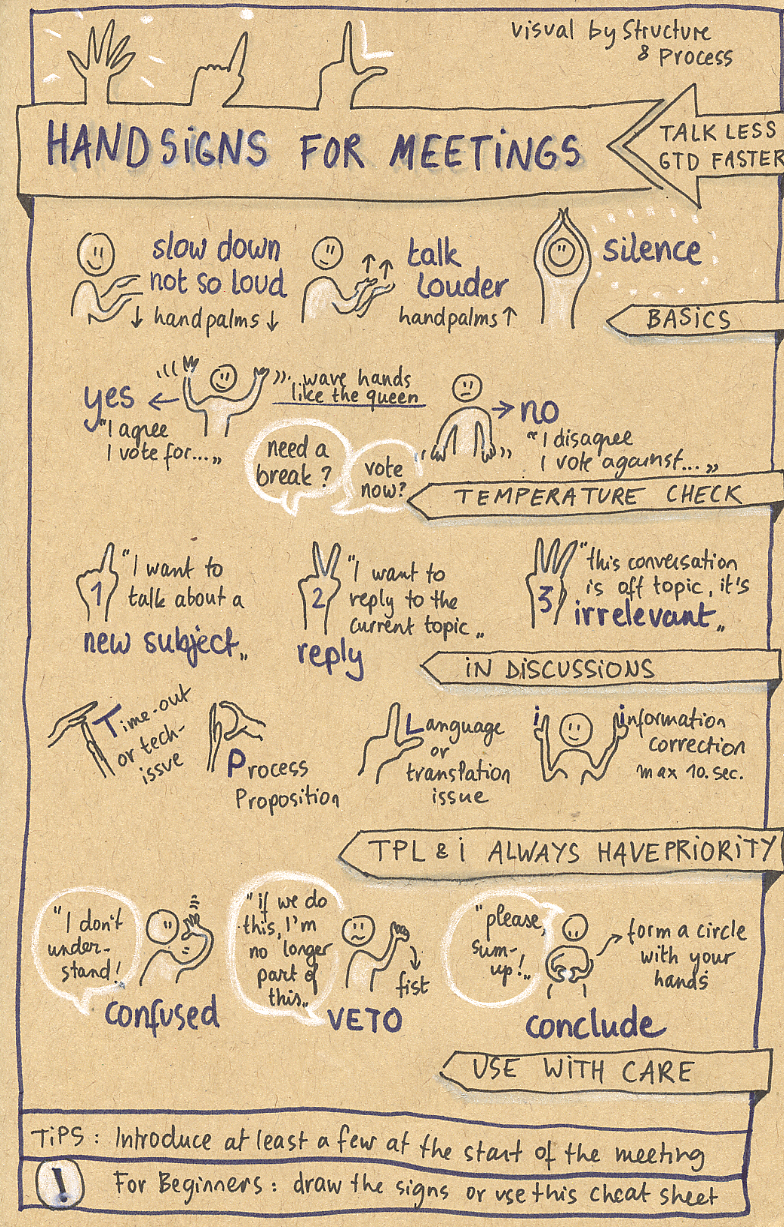Here are our Links of the Week, with a special focus on Holacracy this time, curated from our link collection.
Holacracy
In Unlocking the Benefits of Self-Management Without Going All In on Holacracy, Mike Arauz, a Co-Founder of August, describes the lessons they have learned from Holacracy without relying on the system in their new company.
“While many of Holacracy’s underlying principles are incredibly valuable, it is possible to reap the benefits without formally adopting Holacracy.”
Ever wondered how to make the transition to a new organization model like Holacracy? In Holacracy at BSL: Moving Forward Denitsa Marinova shares her experience of a workshop with a Holacracy-trained coach as the first step.
“Upon reflection, I see how brilliant this is – Holacracy creates a work space where employees speak out of their functional roles and keep personal feelings at bay – a safe space which rules out power games altogether.”
Laura Groten adds a personal assessment to this Holacracy collection. In her article, she focuses on the benefits of Holacracy for her individual development:
“Working with Holacracy, I am empowered to make things better, participate in making decisions and improve my work environment.”
Auf deutsch:
“Was sie meinte, war: Hole dir alle Informationen, die du brauchst, bevor du glaubst, dass die Katastrophe eingetroffen ist. Spar deine Energie, solange du nicht weißt, ob du Grund zum Ausflippen hast.”



